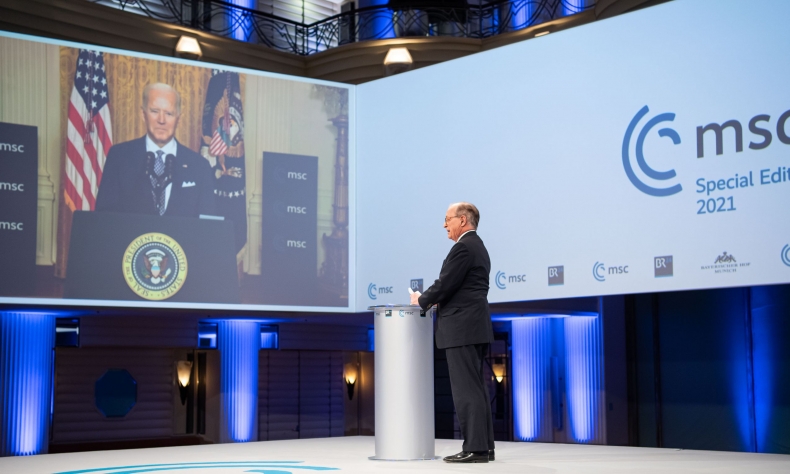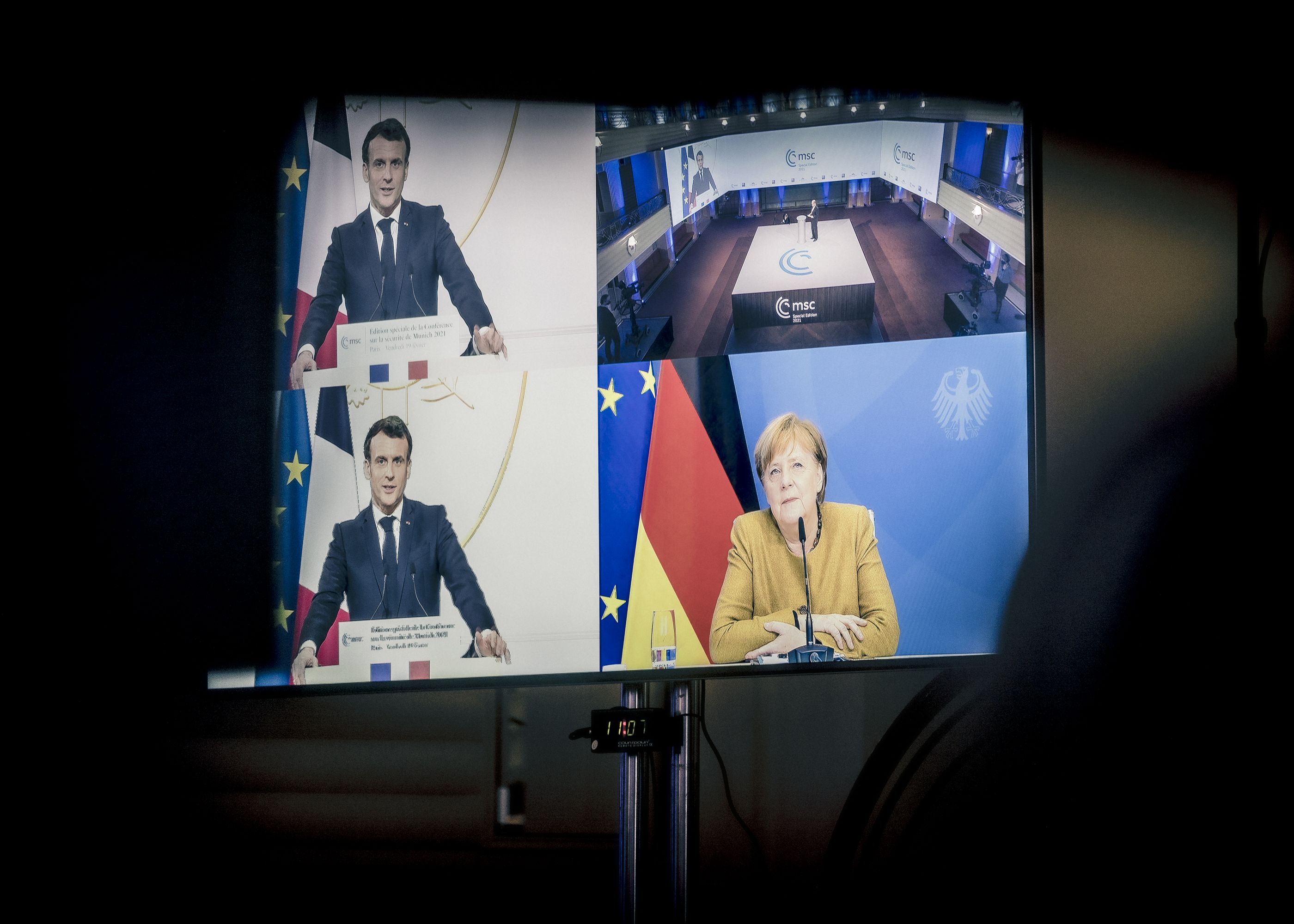Is America Really Back?

The US recently announced its return to the international arena by declaring it was back. But is it?
At his first international conference as leader of the United States, President Joseph Biden had a short but emphatic message for listening world leaders: “America is back.”
Speaking at last week’s Group of Seven (G7) meeting and the subsequent Munich Security Conference, Biden delivered a speech intended to act as a political exorcism of his predecessor Donald Trump, as he looked to repair the damage he’d caused US allies, and reassert the US back into the forefront of international politics.
During the two virtual conferences, Biden reeled off a list of promises his new administration would look to adhere to, including upkeeping the “unshakable” support the US has for the transatlantic alliance, and promising to uphold multilateralism. One the same day, Biden also announced the US had re-signed the Paris climate agreement, promised to re-enter multilateral nuclear talks with Iran, and even found an opportunity to announce the US’ re-entry into World Health Organisation – putting the final nail in the coffin of Trumps disastrous “America First” foreign policy.
There was even the added bonus of the G7 conference concluding with a full joint statement, something that had become a painstaking process when Trump was president, with the US committing $4 billion of an extra $7bn in funding by G7 leaders for vaccine distribution support.
His positive speech admitted the desired response from a number of attending leaders including UK Prime minister Boris Johnson and EU President Ursula von der Leyen, who both expressed their “excitement” that “America was back as leader of the free world”. It seemed then that Biden and his team, in just their first diplomatic engagement, had on the surface succeeded in restoring the US’ battered reputation, and earning an early victory for the new administration.
Not so fast
Not quite. As the US president himself admitted during the conferences, “the last four years have been hard”, especially between it and US allies in Europe, allies who will not have forgotten the bruising treatment they felt at the hands of their biggest ally over the past four-years.
And while his comments and commitments buoyed many leaders, there was enough evidence at the meetings to suggest that Biden faces a difficult task in commanding the same vein of support from allies that previous administrations before Trump once enjoyed.
German Chancellor Angela Merkel and French President Emmanuel Macron, though not directly undermining Biden, used the two conferences to subtly show that they would not so easily bend to the will of the new US administration.

Merkel made a clear point of stating US-German interests “… will not always converge” with the US, while Macron claimed that while he had listened to President Biden’s list of “common challenges,” Europe “… [has] an agenda that is unique.”
Macron in particular appears ready to challenge many of Biden’s international ambitions, including on the role of military alliance NATO, the risks posed by Russia – who Macron has been seeking greater rapprochement with – and the role of the West in the world’s COVID-19 response.
The latter was a bone of contention for Macron during the two meetings, having earlier proposed G7 countries commit vaccine doses rather than simply funding to poor countries, in a similar way both China and Russia have done in recent months. The US, who passed 500,000 COVID-related deaths this week, has been reluctant to give vaccines away in case it negatively impacts its own vaccine rollout, and as a result, the vaccine motion was quickly dismissed.
The China topic
The clearest indication however that Biden faces an uphill struggle in pushing through his international objectives came in the shape of a question, mainly, how to seek a collaborative approach to balance against China?
Biden issued this message during the Munich Security Conference, stating that countries “must prepare together for long-term strategic competition with China.” But while he and his administration believe this to be a key international goal in need of attention, his allies were not so forthcoming.
Few commented on Biden’s assertion, with the pesky Macron preferring to talk about security problems in the Middle East, and by the end of both conferences, China was only mentioned a handle of times. In the G7’s joint statement – published to describe the collective goals of the organisation going forward – China was only referred to in favourable terms with regard to engagement, and a further blow to Biden’s China plans.
In truth, and particularly for European nations, there currently appears little appetite to confront China, with whom the European Union has enjoyed a mutually beneficial relationship with in the US’ absence. China now contributes more trade to the EU than the US for the first-time ever, while the recently signed Comprehensive Agreement on Investment deal highlights the greater integration of the two sides economies.
Other US allies are also placing a greater emphasis on their economic recovery in light of the COVID-19 pandemic rather than taking on China – for whom, as one of the few nations to record positive GDP growth last year, are in need of positive relations.
It’s a penny that appears to have finally dropped in the UK, a country that experienced the biggest annual decline to its economy in 300 years as a result of the COVID-19 pandemic last year, with Boris Johnson recently calling himself “fervently Sinophile” as he looks to restart economic dialogue with the Chinese business community after a year-long freeze, and get the UK’s economy back on track.
Is America really back?
After four-years in the wilderness, Biden’s assertion that the US is back is positive for US allies in their global efforts to successfully accomplish common challenges such as fighting climate change and bringing an end to the COVID-19 pandemic.
But the diplomatic world the US has re-entered is vastly different to the one it left in 2016. Allies trust in the US has been deeply eroded after the actions of the previous administration, and countries once bitten by the US are now twice as reluctant to blindly follow its lead, especially when the benefits do not align with their own.
It is still early days for this new US administration, which is still getting to grips with the new political environment it finds itself in. But if it is truly back, then it needs to get with the new program – a program that doesn’t always seek to promote a US-led agenda.
 Facebook
Facebook
 Twitter
Twitter
 Linkedin
Linkedin
 Google +
Google +







